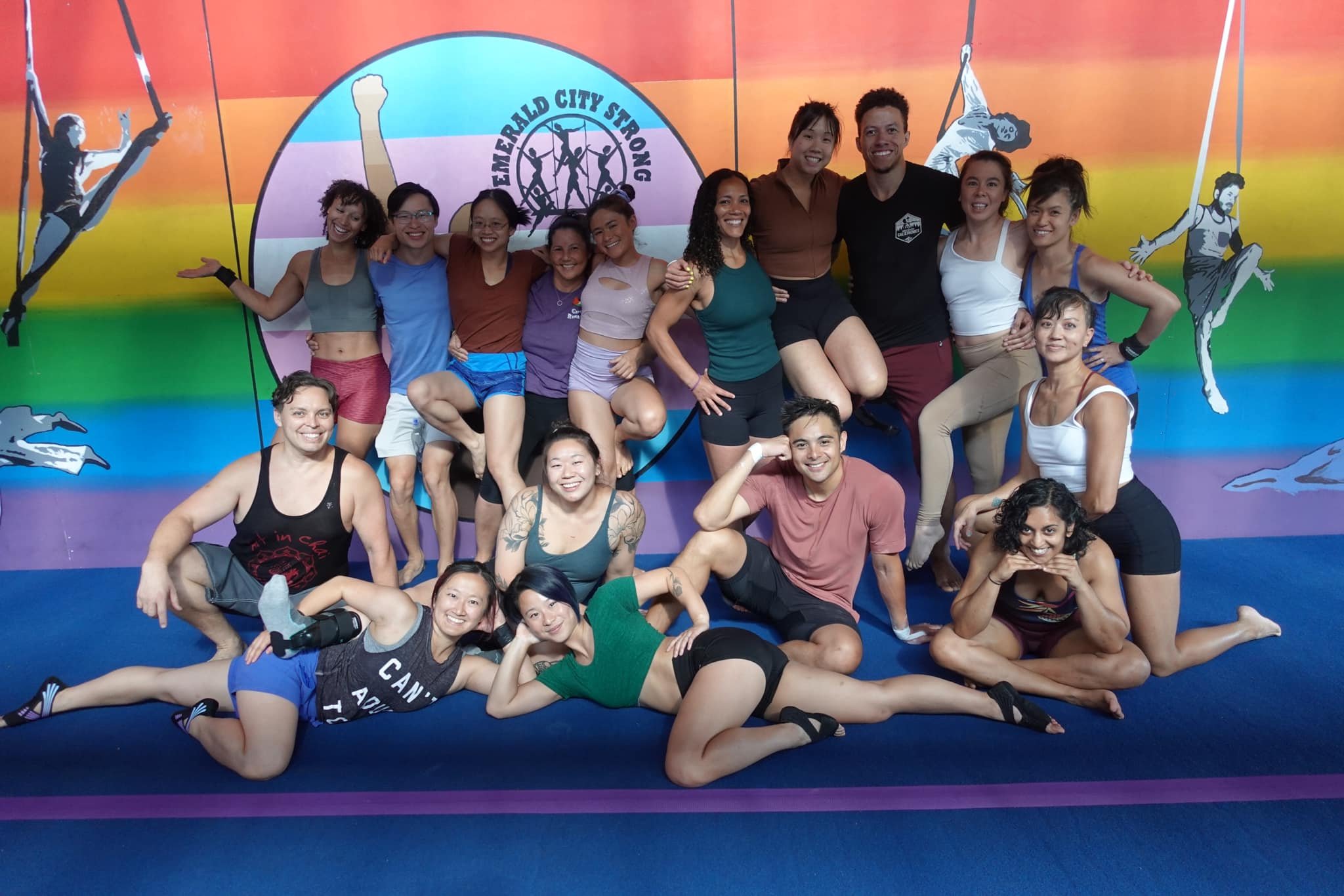
Resources
Inclusivity for Communities
Questions to ask to determine if your spaces center inclusivity
Here are some questions that people of color are often thinking about when evaluating places to train circus disciplines:
If I'm a person of color, will I fit in? Will there be a good amount of other BIPOC acrobats there?
Is the general environment conducive to not 'othering' marginalized groups (Black, Brown, Queer, Trans, GNC, Fat, Disabled, etc), not making them feel tokenized or not seen?
Are the organizers aware of racial/social justice issues and power dynamics, and how these show up in circus? Will organizers address (micro)aggressions when they happen?
Are the organizers open to ongoing feedback, especially from attendees with more marginalized identities?
Are there BIPOC in leadership postions? Teachers? Organizers?
Is there acknowledgment for the Indigenous land where events are held?
Are there efforts made towards financial accessibility (sliding scale, volunteer spots, work/trade, BIPOC scholarships)?
Challenging the Status Quo
BACCES asks organizations to agree to certain precepts before we agree to partner. Just having “BIPOC scholarships” or saying “You are welcome here” can feel like performative gestures towards inclusion.
Some things that BACCES looks at when evaluating partnerships are whether the organizations agree to:
Donating free tickets that we can grant to BIPOC artists
Doing a meaningful land acknowledgment at the start of their programming
Hiring BIPOC instructors
Hosting social justice learning chats
Attending a racial justice onboarding presentation
Supporting BIPOC affinity group meet-ups
Fundraising for BIPOC organizations
Representation is a start, but we are asking for a commitment to changing the culture of circus spaces to be more welcoming to all.
Are you a first-time festival goer?
Check out our resource with tips and best practices to prepare!
Print and Media Resources
Here are some printable and shareable resources for your community spaces!
This captivating poster was created by a team of BIPOC acro activists who saw a need to name and remedy the elements of our acro community and practice that contribute to bias and a lack of inclusion. You can review this resource with your groups and communities, and print (in color or grayscale) to hang in your practice spaces and at your events.
Want more info on each of the roadblocks on this poster?
Check out the linked resources at Acro for All!
The BACCES team created this onboarding resource for our organization and event partners to view and share with their coaches and staff — and now you can view it too! Get in touch if you’d like us to share the slides or other resources directly with your group.
Want to help BACCES fundraise in your local community? You can print and post this quick guide so that folks can easily connect with our accounts on the payment platforms of their choice. Remember, BACCES has a fiscal sponsorship, so that means your donations are tax-deductible!



